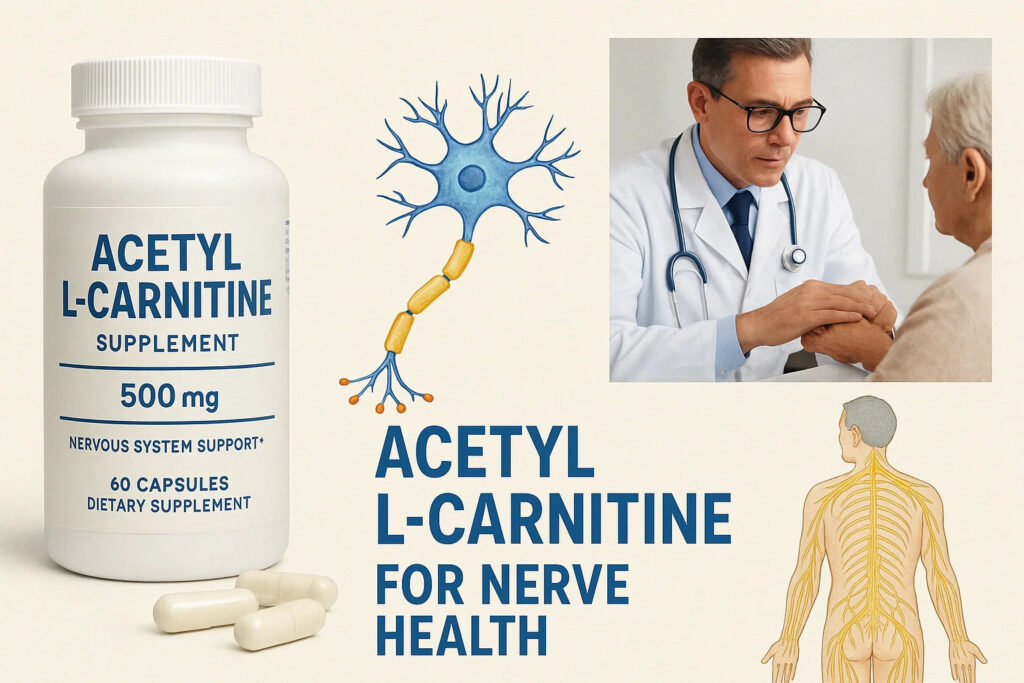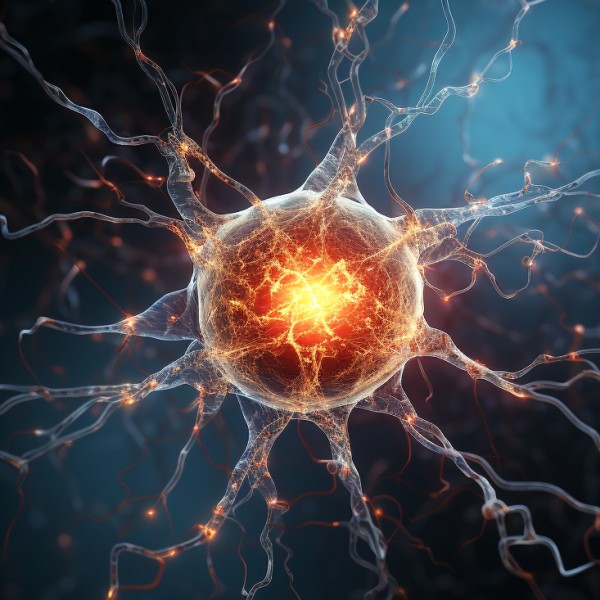
Acetyl L-Carnitine scientific studies
Acetyl L-carnitine (ALC) has shown promise in treating and potentially preventing neuropathy, especially in conditions like diabetic neuropathy, chemotherapy-induced neuropathy, and antiretroviral-associated neuropathy. Research indicates ALC can reduce pain, improve nerve function, and potentially enhance nerve regeneration.
Specifics of ALC’s Potential Effects
- Pain Reduction Studies suggest ALC can significantly reduce neuropathic pain, with some trials showing a reduction of up to 20.2% compared to placebo. [1][2]
- Nerve Function Improvement ALC has been shown to improve nerve conduction velocity and amplitude response, particularly in the ulnar nerve.
- Nerve Regeneration ALC may promote nerve regeneration and target organ reinnervation. [3][4]
- Neuroprotection ALC demonstrates neuroprotective effects, potentially reducing oxidative stress and preventing apoptosis (programmed cell death) in nerve cells.
- Specific Neuropathies ALC has been studied in various neuropathies, including diabetic neuropathy, chemotherapy-induced neuropathy (CIPN), antiretroviral-associated neuropathy (ATN), and carpal tunnel syndrome.
Examples of Research Findings
Diabetic Neuropathy A systematic review and meta-analysis found ALC effective in reducing pain, improving nerve conduction, and improving electromyographic parameters in diabetic peripheral neuropathy.
- Chemotherapy-Induced Neuropathy Studies suggest ALC can prevent and reduce CIPN induced by drugs like paclitaxel and docetaxel.
- Antiretroviral-Associated Neuropathy ALC has been shown to be well-tolerated and may have some efficacy in treating ATN.
- Carpal Tunnel Syndrome ALC has shown promise in improving symptoms and neurophysiological measures in patients with carpal tunnel syndrome.
Important Considerations
Underlying Conditions ALC may not be suitable for everyone, and it’s important to consult with a healthcare professional to determine if it’s an appropriate treatment option.
Dosage and Duration The optimal dosage and duration of ALC treatment for neuropathy are still being investigated, and further research is needed to determine the most effective approach.
Individual Variability The response to ALC may vary among individuals, and it’s crucial to monitor for adverse effects.
Safety Profile ALC generally has a good safety profile, but some individuals may experience minor side effects.
- Acetyl-L-carnitine in painful peripheral neuropathy
J Pain Res. 2019 Apr 26:12(1):1341-1351 - Effect of acetyl-l-carnitine in the treatment of diabetic peripheral neuropathy
Eur Geriatr Med 2017 Apr:8(2):117-122 - Acetyl-l-carnitine corrects the altered peripheral nerve function of experimental diabetes
Metabolism 1995 May:44(5):677-680 - Acetyl-l-carnitine increases nerve regeneration and target organ reinnervation – a morphological study
World Journal of Diabetes 2015 Mar 15;6(2):245–258 - Acetyl L-Carnitine: from a biological curiosity to a drug for the peripheral nervous system and beyond.
Expert Rev Neurother 2013 Aug;13(8):925-36 - Acetyl L-Carnitine in the treatment of peripheral neuropathic pain: a systematic review and meta-analysis of randomized controlled trials
